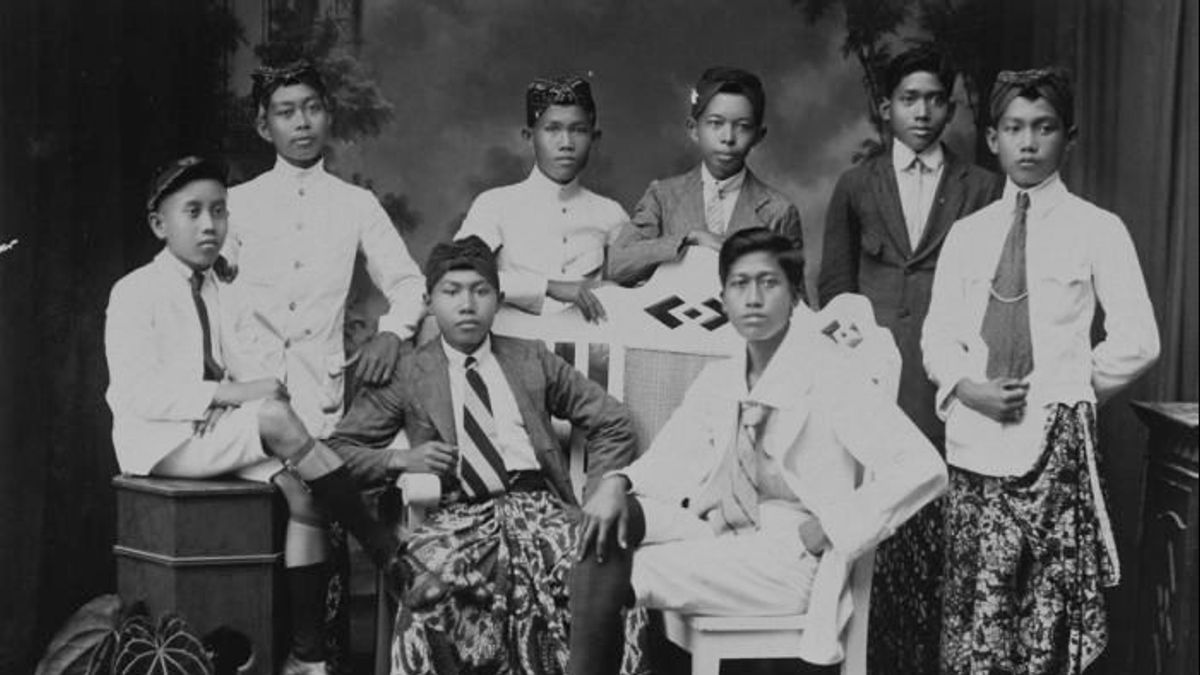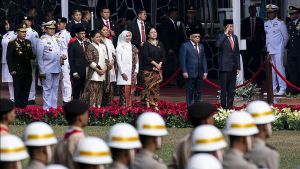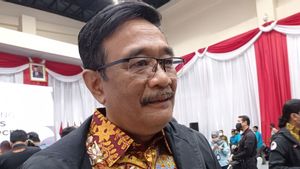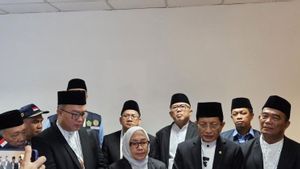JAKARTA - Budi Utomo has a role in Indonesia's historical journey. The organization was established to provide space for the natives to unite against ignorance. This condition made Soekarno draw important conclusions.
Bung Karno posted Budi Utomo's date of birth as a big marker: National Awakening Day. However, not all agree with Bung Karno's choice. The debate arose afterward. Some consider Budi Utomo too elitist. Others consider Budi Utomo to be fighting for the fate of priyayi's children, not all natives.
In the past, when I went to school was something that was impossible for the bumiputras. Everything changed when the colonial government of the Dutch East Indies began to impose politics of reciprocity (Ethical Politics) in 1901. The return politics was carried out because the Dutch had imposed too much sweat on the bumiputras.
The Dutch were also demanded by their own people to be responsible for building the Dutch East Indies (now: Indonesia). In education, for example. The Dutch began to invite the natives to attend European schools. Even if they are allowed to go to limited schools to priyayi.
In fact, this opportunity became the master's weapon. Young educated people began to disturb the Dutch colonialists. The natives who attended school began to believe that education was a path that could liberate Indonesia from Dutch colonialism.
The Bumiputras who studied at the Bumiputra Doctor School, STOVIA and others began to realize they had to unite. The unity was then marked by the presence of Budi Utomo on May 20, 1908.
The organization was deliberately presented to defend the rights of the bumiputras. Budi Utomo's focus is the availability of education for the bumiputra in Java and Madura. The big figures behind Budi Utomo are also piled up.
Wahidin, Soetomo, Mohammad Soelaiman, Gondo Soewarno, and Goenawan Mangoenkoesoemo. This condition made many other students join the Soewardi Soerjaningrat (Ki Hajar Dewantara) and Tjipto Mangoenkoesoemo.
SEE ALSO:
This condition then made Soekarno make an important decision when Indonesia became independent. Soekarno attracted Budi Utomo and appointed him as a marker of National Awakening Day on May 20, 1948. As a result, Budi Utomo's birthday is celebrated every year as the main foundation of the struggle to achieve independence.
The decision was made to form a student organization to advance low priyayi interests. In May 1908, a meeting was held that gave birth to Budi Utomo. This Javanese name (which should have been treated as the main cultivation) was translated into Dutch by the organization as a tet schoone streven (a beautiful effort).
"But according to various Javanese connotations, the name also contains the meaning of scholars, character, or noble culture. At the first meeting, student representatives from STOVIA, OSVIA (Pangreh praja school), teachers' schools, as well as agricultural schools and animal medicine were present. Budi Utomo's branches were established at the educational institution," said historian MC Ricklefs in the book History of Modern Indonesia 1200-2008 (2008).
The determination of National Awakening Day invites criticism. This criticism is like inviting back comments from national figures such as Tjipto Mangoenkoesoemo who said Budi Utomo was too elitist. The tones compare Budi Utomo and other organizations to appear.
Some consider Budi Utomo's presence has not indicated Indonesianness. Budi Utomo is considered to still hold regional principles. They are from other ethnic groups besides Java, it is difficult to enter Budi Utomo.
The most reasonable view regarding Indonesia is that it was only born in the 1920s. The signator is the existence of the Indonesian Association (PI) which is an organization of Bumiputra student associations in the Netherlands.
They are considered to be instrumental in presenting the matter of Indonesianism with all its diversity, including the birth of the youth oath. Comments related to utomo cultivation are not yet feasible as an opening to nationalism is increasing.
They consider the emergence of PI, Sarekat Islam, or the Indies Party (Indische Partij) to be considered more appropriate. The feud was recognized by many national figures. Bung Hatta even spoke up. He did not want the determination of National Awakening Day to always be questioned.
Hatta took the middle ground. Hatta said that Budi Utomo was not an icon of marker of nationalism. Or immediately become an organization for the national movement icon. Instead, Hatta revealed that Budi Utomo was like the gateway to the national spirit.
A door capable of opening another national event. Hatta did not want the debate to continue every time near the celebration of National Awakening Day. The statement was made by Hatta in Star Weekly magazine, May 17, 1958.
In his writing, Bung Hatta first admitted that Budi Utomo, who was standing on May 20, 1908, did not meet the requirements to be named the National Movement. If measured with the current understanding of the so-called political struggle and national movement.
"Furthermore, Bung Hatta reminded that from the atmosphere at that time, Budi Utomo already contained: an increase in the national spirit. Bung Hatta then emphasized that Budi Utomo could be seen as a precursor to the national movement that appeared in 1912 and 1913 with the birth of Nationale Indische Partij and Sarekat Islam," explained P. Swantoro in the book From Book to Book: Connecting To One(2016).
The English, Chinese, Japanese, Arabic, and French versions are automatically generated by the AI. So there may still be inaccuracies in translating, please always see Indonesian as our main language. (system supported by DigitalSiber.id)


















